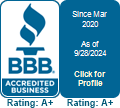
Raising Money-Smart Kids: How an Allowance Can Teach Financial Responsibility
Financial literacy is not something we are born with—it is a skill developed through practice and real-life experience.One of the best methods to teach your kids financial responsibility is through allowances. This simple yet powerful tool helps kids understand the fundamentals of earning, saving, and spending while shaping healthy financial habits that can last a lifetime.
Here, we will explore how an allowance can teach your kids to grow into financially savvy adults.
Why Giving an Allowance Works
Teaching the Value of Money
Children who receive an allowance learn that money is a limited resource to be earned and carefully managed. It will be a practical lesson about the value of money and inspire them to make sensible financial decisions and plan for immediate and long-term objectives.
Real-Life Budgeting Experience
By managing their allowance, kids can start learning the basics of budgeting. They will realize that spending everything in one place means missing out on something later. This early exposure to budgeting sets the stage for more complex financial responsibilities in adulthood, such as paying bills, managing expenses, and saving for larger goals.
Instilling the Habit of Saving
One of the most crucial money lessons an allowance teaches is the habit of saving.Encourage your youngster to save a portion of their weekly allowance. It can be for a specific goal, like a new toy, or simply as an emergency fund. Over time, they will develop a healthy habit of prioritizing savings—an essential skill for financial stability in adulthood.
How to Structure an Allowance for Success
Link Allowance to Chores or Good Behavior
Many parents wonder if allowances should be attached to chores or good behavior. Linking allowances to household chores can reinforce the concept that to earn money, they need to work. However, giving an allowance regardless of chores can teach financial responsibility without the added pressure. The key is consistency—whichever method you choose, stick to it.
Encourage a “Spend, Save, Give” System
A great way to instill balanced financial habits is to encourage your child to divide their allowance into three categories: spend, save, and give. It teaches kids to prioritize finances and comprehend the joy of giving to others or supporting charitable activities. Plus, having “spending” money allows them to decide what to buy, fostering critical thinking and decision-making skills.
Teach the Power of Delayed Gratification
Allowances provide a fantastic opportunity to teach your child about delayed gratification. Instead of buying something impulsively, motivate them to save for a bigger goal. This lesson translates into better financial decisions later in life, such as saving for a car, a house, or an emergency fund.
Set Savings Goals
Savings can become more tangible and enjoyable if you assist your youngsters in setting goals for themselves. Whether for a new toy, a bike, or a big adventure, having a goal gives them something to look forward to. Also, working towards a goal will help them learn the value of patience and discipline when managing money.
How to Make Allowance Work for Your Family
Start Small and Grow
When introducing an allowance, start with a small amount that reflects your child’s age and needs. You can gradually increase it when they demonstrate responsible spending and saving habits. It will teach them to manage their money in stages, just as they will with increasing responsibilities as they grow older.
Be Clear About Expectations
Establish clear guidelines on what the allowance is for and what expenses it will cover. For younger kids, it can mean they are responsible for buying their toys or treats. When they are older, they can take on more financial responsibility, like covering social outings or hobbies. It prepares them for the real-world expenses they will encounter as adults.
Tools to Use to Track Their Money
Kids can keep track of their donations, savings, and expenditures with the aid of several tools and apps. These tools can make money management more engaging and help them develop digital financial skills as they grow. Alternatively, a simple ledger or savings jar system works well, especially for younger kids who benefit from visual cues.
Fostering Independence and Entrepreneurial Spirit
Encourage Creative Ways to Earn Extra Money
In addition to their allowance, encourage your child to think of creative ways to earn extra money. It could include walking a neighbor’s dog, selling handmade crafts, or even doing extra chores. These small entrepreneurial efforts will teach them the value of hard work and broaden their understanding of income generation beyond a set allowance. It also helps to nurture a sense of resourcefulness and independence.
Nurturing Money Management Skills through Growth
Embrace Learning Opportunities (Room for Mistakes)
Making mistakes is a common aspect of learning, particularly about finances. If your child spends all their allowance at once or makes a less-than-wise purchase, use it as a teaching moment. Explain the consequences in a supportive way and encourage them to think about how they could make a different decision next time. These financial setbacks will help them build resilience and become more thoughtful spenders in the future.
Introduce the Concept of Interest and Growth
As your child becomes more comfortable with saving, introduce the concept of earning interest on their savings.You could stimulate paying them interest on their savings,which will help them understand how their money can grow over time. This early lesson in compounding interest can have a powerful impact, encouraging them to save more and setting the foundation for understanding long-term financial growth, such as investing in the future.
The Long-Term Advantages of Teaching Financial Literacy Early
Teaching your child to manage an allowance does more than prepare them for financial success—it instills critical life skills. Children who grow up learning the importance of saving, budgeting, earning extra money, and making thoughtful spending decisions are more likely to become financially responsible adults. They will be able to navigate the challenges of managing credit cards, student loans, and other financial commitments in the future.
Final Thoughts: Set Your Child Up for Financial Success
An allowance might be a small step, but it can have a lasting impact on your child’s financial habits and overall well-being. By giving your child the tools to manage their own money, introducing creative ways to earn more, and embracing their learning opportunities, you will set them on the path to financial independence. These early lessons in saving, budgeting, and earning interest will empower them to make informed decisions about their financial future.


